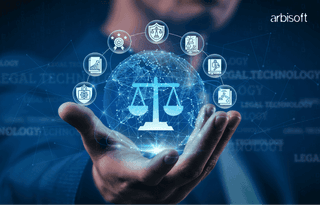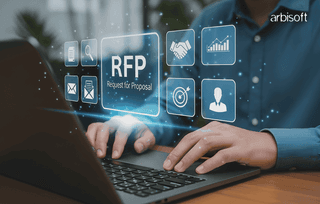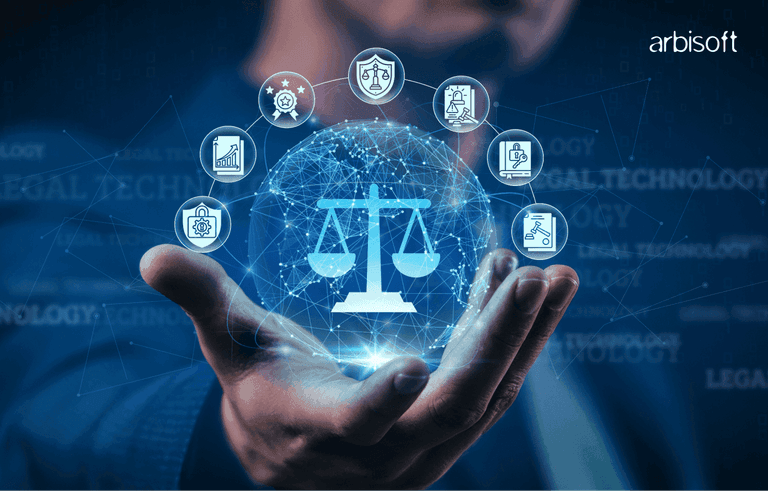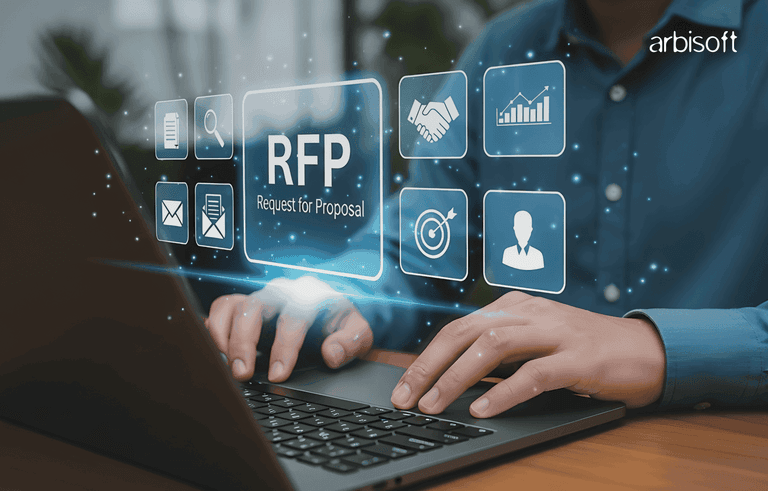We put excellence, value and quality above all - and it shows




A Technology Partnership That Goes Beyond Code

“Arbisoft has been my most trusted technology partner for now over 15 years. Arbisoft has very unique methods of recruiting and training, and the results demonstrate that. They have great teams, great positive attitudes and great communication.”
The Impact of SearchGPT on Modern Academic Research and Education

Imagine having a tool that can instantly answer any homework question, customize lessons to match your learning style, and help educators create engaging materials; all with just a few clicks. This is becoming possible with SearchGPT, a new revelation set to change academia and shape the evolution of SEO.
Traditional teaching methods may be overwhelming because students could face excessive information, one-size-fits-all lessons, and not enough personal support. Research can be hard and slow, with students struggling through complex texts, and teachers often not being able to give each student the attention they need. SearchGPT solves these problems by providing clear, relevant answers and personalized learning help while making research easier with quick summaries through search engine technology.
In this blog, we will cover the various ways SearchGPT will revolutionize education, including its support for students, innovative applications for teachers, and the benefits it offers to researchers.
How will SearchGPT Support Students with Instant Help and Personalized Learning?
SearchGPT will act as a personal tutor available around the clock, providing essential support whenever needed. One of its key features will be the instant help it offers. Whether students are solving a complex math problem, understanding a challenging science concept, or needing a quick explanation of historical events, SearchGPT will immediately deliver clear, step-by-step answers by leveraging RLHF for improved search relevance. This quick assistance will ensure that students can continue their studies without waiting for the next class or tutoring session, minimizing interruptions in their learning.
Additionally, SearchGPT will enhance learning by adjusting its explanations to match the student's level of understanding. If a student finds a topic difficult, SearchGPT will simplify the explanation or break down complex ideas into easier parts.
Watch out though…
While SearchGPT can provide tailored responses based on input, its ability to fully adapt to individual learning styles or track progress over time is more limited. It offers valuable support but may not be as personalized as a dedicated tutor. Still, it remains a powerful tool for helping students grasp concepts quickly and effectively, supporting their learning journey at any time.
Innovative Ways Teachers May Use SearchGPT to Boost Teaching
SearchGPT might make it easier for teachers to improve their teaching plan. For instance, its AI source-checking feature will help verify the trustworthiness of sources in student essays. Teachers will simply enter the reference details, and SearchGPT will confirm if they’re accurate and relevant.
When it comes to planning lessons, SearchGPT will be a significant help. Teachers will have the opportunity to use it to create detailed lesson plans with all the necessary content and resources, organized in a simple way. By searching for the topics they need, SearchGPT will assist in putting together comprehensive lesson materials.
Keeping up with the latest research is important for teachers, and by leveraging machine learning to enhance online search, SearchGPT will make this easy. By typing in their topic, they will quickly find reliable sources for their lesson plans and research, ensuring they stay up-to-date with the newest information.
Finding high-quality content will also be easier with SearchGPT. It will guide teachers to content from trusted educational websites and journals, ensuring they access the best materials. By looking for search results from well-known publishers or those with significant citations, teachers will ensure high-quality content.
Lastly, checking the accuracy of information for student projects and AI rubrics will be simple with SearchGPT. It will provide clear links to the original content, allowing students to easily verify the information they use.
Teachers who want to start using SearchGPT can request beta access by visiting OpenAI’s official website, making it simple to add AI tools to their teaching.
How will SearchGPT Support Researchers in Finding Key Information
Researchers will find SearchGPT a valuable tool for their work. When researchers need to review academic papers, SearchGPT will summarize the key points, saving them time. It will highlight important findings and insights from various studies, making research easier and faster.
SearchGPT will help researchers find and organize important information from a lot of sources. This will make it easier to analyze trends and gaps in research.
Ethical Considerations
While SearchGPT offers many benefits, it’s important to think about some key ethical issues:
1. User Privacy
Privacy is a big concern. SearchGPT will handle a lot of personal and academic information, so it’s crucial to ensure that this data is protected. Users need to know that their information is safe and that their privacy is respected. Businesses are increasingly leveraging cybersecurity services to enhance data protection, prevent breaches, and ensure compliance with privacy regulations.
2. Biased Information
Another issue is the potential for biased information. SearchGPT might unintentionally provide biased responses based on the data it was trained on. It’s important to work on minimizing these biases to ensure the information is fair and accurate.
3. Impact on Industries
The concerns about privacy and bias will affect all areas where SearchGPT is used, not just education. Whether in healthcare, business, or any other field, it’s essential to address these issues and use AI responsibly.
Looking Ahead
SearchGPT will bring many exciting changes to education, making learning more personalized, efficient, and engaging. It will support students, help teachers, and assist researchers in new and powerful ways. However, it’s crucial to address ethical issues, like privacy and bias, to ensure that SearchGPT is used responsibly and benefits everyone.
In a nutshell, SearchGPT has the potential to transform education for the better. As we move forward, we need to balance innovation with ethical considerations to make sure this tool enhances learning while respecting privacy and fairness.
Disclaimer: Please note that the above insights are based on current assumptions about SearchGPT's capabilities. As users begin to explore and integrate SearchGPT into their daily routines, it may offer even more functionalities and benefits than anticipated.
























